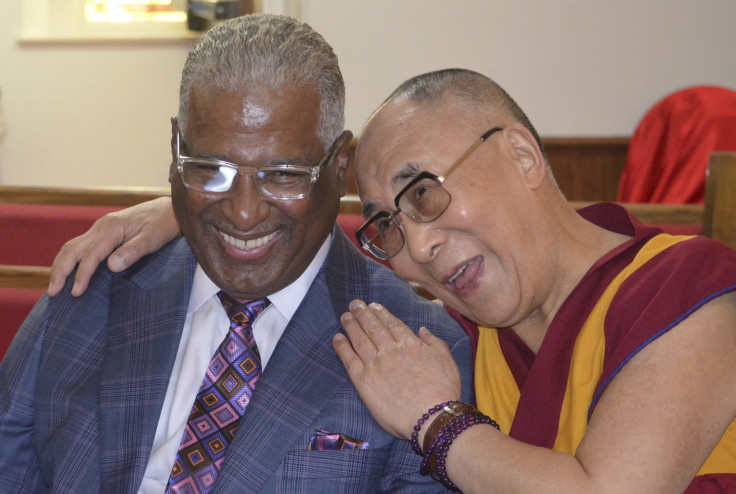Dalai Lama Visits Baptist Church In Alabama That Was Scene Of Firebombing That Galvanized Civil Rights Movement

(Reuters) - The Dalai Lama, spiritual leader of Tibet, visited one of America’s sacred sanctuaries on Saturday, touring the church where four African-American girls were killed in a 1963 bombing that galvanized the civil rights movement.
As more than 300 protesters and supporters chanted and beat drums outside, the Dalai Lama held hands with Birmingham Mayor William Bell inside the 16th Street Baptist Church and said he was overjoyed to stand at the site where the Rev. Martin Luther King Jr. and other civil rights leaders in the 1960s launched rallies for freedom for African-Americans.
“Human rights starts from within," the Dalai Lama said. "It does not come from skies. It does grow from earth."
He said: ”Martin Luther King was important to the acceptance of civil rights. Now the American people, majority are white, accept the reality.”
The Dalai Lama talked about income inequality as a threat to peace.
"Because of the economic situation, there is frustration,” he said. "Frustration brings anger. Then anger brings violence.
“There are no billionaires in Tibet. There is no gap.“
The 79-year-old Tenzin Gyatso, enthroned in 1950 as the 14th Dalai Lama, responded to questions about his future and said Buddhism would continue without a Dalai Lama.
"Some people think it's important to Buddhism," he said. "It's not."
Outside the church, protesters from the International Shugden Community, who say the Dalai Lama has persecuted them for following Dorje Shugden, an ancient Buddhist deity he denounced decades ago, shouted: “Stop lying, false Dalai Lama.”
They said they were discriminated against in India and other communities of Tibetan exiles.
The Dalai Lama said Shugden Buddhism was never banned, but he does not support the practice.
Little more than 50 years ago, demonstrators protesting segregation laws rallied at almost the same spot, braving fire hoses and police attack dogs.
(Editing by Barbara Goldberg and Lisa Von Ahn)
© Copyright Thomson Reuters 2024. All rights reserved.





















